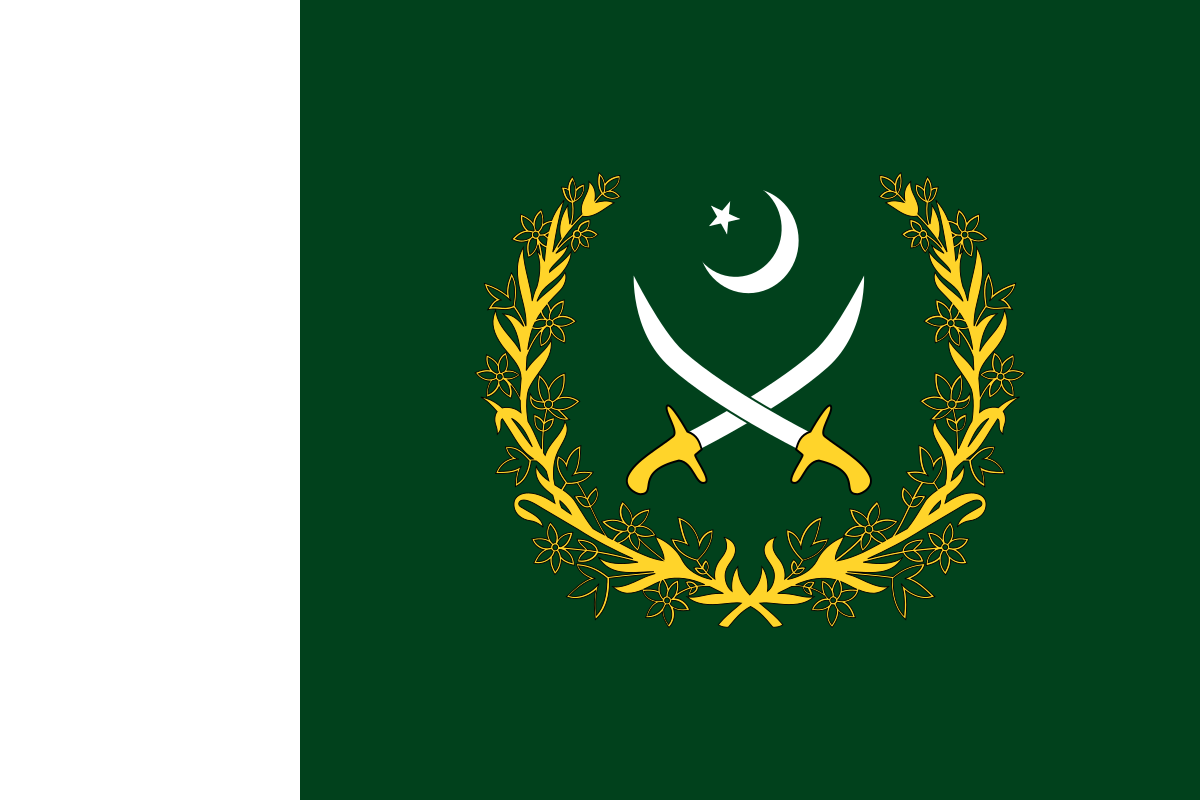One of our prime ministers was hanged by his cherry-picked COAS, and some others were given another lease of life when the incumbent head-honcho of the uniformed clan ended their misery in Cromwellian style. These fixes may have been the inevitable consequence of our history, the special status of the military, or the inadequacies of our civilian institutions – but this is not the time to moan or groan over them. By all means, correct the civil-military imbalance and pay the necessary price to put an end to this circus of the absurd; right now, however, as our poor Prime Minister is fighting floods, making many an end meet, and keeping distance from his political foes and friends, let’s help him find potentially the most powerful man in Pakistan, who would not throw his considerable weight around.
Ours is not the only country in which the military has guns, but is certainly amongest those where the political power continues to flow through their barrel. If that’s what led some of our selectors go down the ladder to find an army chief who would spare their throne, it always backfired: not necessarily because of a bad choice; but more so because the man so chosen now carried a political baggage, and had been catapulted to an office that allowed him to get rid of it. Selecting an army chief in Pakistan is thus like tossing a boomerang. If not done correctly, it could cause plenty of damage – especially to the launcher.
The problem however is that most other criteria too were not easy to fulfil. Seniority and Suitability come readily to mind. And indeed, not every three-star general, admiral, or air marshal, regardless of his mastery over the military affairs, when saddled with the duties of a service chief may be as good as some others. At that level, other than interacting with one’s peers from sister services and civilian institutions, some wheeling and dealing beyond the frontiers also comes with the job. Judging the potential of an aspiring four-star in these domains is however a dicey affair – not normally within the competence of a run of the mill prime minister or the coterie of advisors he or she is usually stuck with. To make the challenge even more daunting – in fact, to humble the high and mighty – at times someone seemingly short on this scale could do a spectacular job when in office. Zia was known to have some personal quirks but no one ever expected that he, when in power, could run circles around the world. Like it or not: that was the need of the time.
Some countries have tried to evolve a reasonably working system, but I am not sure if that would also serve our purpose.
In the US for example, at the height of the Cold War, the then-American President picked up Haig who was almost the fiftieth on the seniority list, to be the Supreme Commander of the Allied Forces in Europe. If it was for any special skills for the job, I do not know. But he did go on to become the Secretary of State, signifying that the man had certain talents in the American scheme of things.
Germans are different. They believe that the potential for future generalship has to be recognized early in an officer’s carrier. After a badge has been tested for the staff course, about the first ten percent are taken on a fast track to rising to the higher ranks. In oriental societies, where age and service still count for something, this system might lead to heart attacks, suicides, or divorces.
In the Indian Army, both merit and seniority have been given their fair share. Over a hundred lieutenant generals go through a filtration process to throw up around a half dozen of them to head the regional commands and be appointed as the vice chief of army staff. Thereafter, it’s strictly on seniority even if the next in the line got the top slot for a couple of months. Our higher judiciary may have learned from that formula, and the cost of once having a chief justice for less than a month was still more affordable than that of bad blood amongst the senior bewigged judges.
In our case, we do not have a system of short-listing the ‘potential chiefs’ from almost a score of lieutenant generals. There is however another factor that has been bugging the seniority roll of our army. General Zia once came to the ingenious conclusion that since he was not leaving in a hurry, the rung below him – that of the three stars – must become more mobile to keep the promotion ladder moving. Our lieutenant generals, except for an odd one who will go through the opening created by an out-going army chief, must retire after four years in the rank.
This has had an unsettling effect on the institutional stability. Anyone promoted to that rank has to shuttle within this limited timeframe between a number of three-star posts – and retires before the ones who were not. Then there were instances when perfectly good contenders missed being in the run merely by days. It gave rise to speculations that the timing of such promotions (to the third star) was manipulated to have the “right seniority” when the next crucial choice was due. Some believe for example that Zia, who could even manipulate a referendum through an innovative question, had pre-programmed the next vice-chief assignments for years to come. Indeed, the nature has its own ways of upsetting human calculations, but the mere thought that the system could be ordered to one’s desires was not very comforting.
Yet another factor that spoils the order is when a service chief gets an extension in his tenure. Some of the implications are well known: many waiting in line missing the bus, and the unhelpful message that the next aspirants were not up to the mark. Some institutional maladies were not so familiar. Within the organization, the beneficiary loses his aura; and it may lead one or the other to suck-up to the political bosses to get the coveted job or seek extension.
The upshot of this to-and-fro is that in the present overall environment, the best option is to stick to tenure and seniority – not only because the alternatives were more complex, but also to avert the unhealthy public discourse that precedes every such selection – more importantly, to prevent an odd aspirant from lobbying for this office. The only choice that may have to be made is who amongst the top two would make a better advisor to the government on defence matters. He is then the right man to be the Chairman Joint Chiefs of Staff Committee and to spare the COAS from this onerous responsibility.
About Author: Lieutenant General Mohammad Asad Durrani is a retired 3-star rank general in the Pakistan Army and presently a commentator, speaker, and author. Durrani previously served as the director-general of the Inter-Services Intelligence and former director-general of the Pakistan Army’s Military Intelligence.
The article appeared earlier in Command Eleven.
- Global Defense Insighthttps://defensetalks.com/author/umair/
- Global Defense Insighthttps://defensetalks.com/author/umair/
- Global Defense Insighthttps://defensetalks.com/author/umair/
- Global Defense Insighthttps://defensetalks.com/author/umair/













